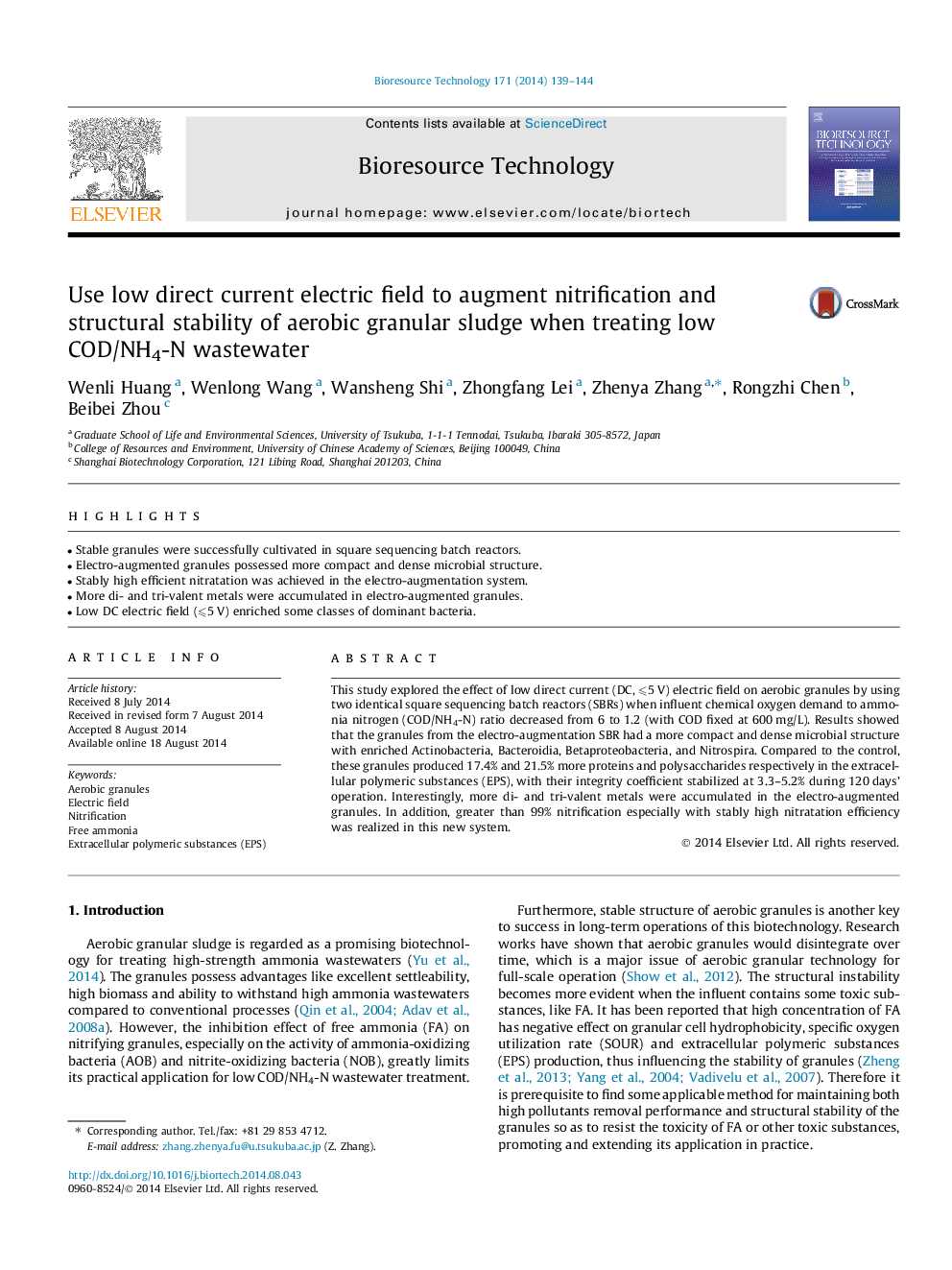| Article ID | Journal | Published Year | Pages | File Type |
|---|---|---|---|---|
| 680351 | Bioresource Technology | 2014 | 6 Pages |
•Stable granules were successfully cultivated in square sequencing batch reactors.•Electro-augmented granules possessed more compact and dense microbial structure.•Stably high efficient nitratation was achieved in the electro-augmentation system.•More di- and tri-valent metals were accumulated in electro-augmented granules.•Low DC electric field (⩽5 V) enriched some classes of dominant bacteria.
This study explored the effect of low direct current (DC, ⩽5 V) electric field on aerobic granules by using two identical square sequencing batch reactors (SBRs) when influent chemical oxygen demand to ammonia nitrogen (COD/NH4-N) ratio decreased from 6 to 1.2 (with COD fixed at 600 mg/L). Results showed that the granules from the electro-augmentation SBR had a more compact and dense microbial structure with enriched Actinobacteria, Bacteroidia, Betaproteobacteria, and Nitrospira. Compared to the control, these granules produced 17.4% and 21.5% more proteins and polysaccharides respectively in the extracellular polymeric substances (EPS), with their integrity coefficient stabilized at 3.3–5.2% during 120 days’ operation. Interestingly, more di- and tri-valent metals were accumulated in the electro-augmented granules. In addition, greater than 99% nitrification especially with stably high nitratation efficiency was realized in this new system.
